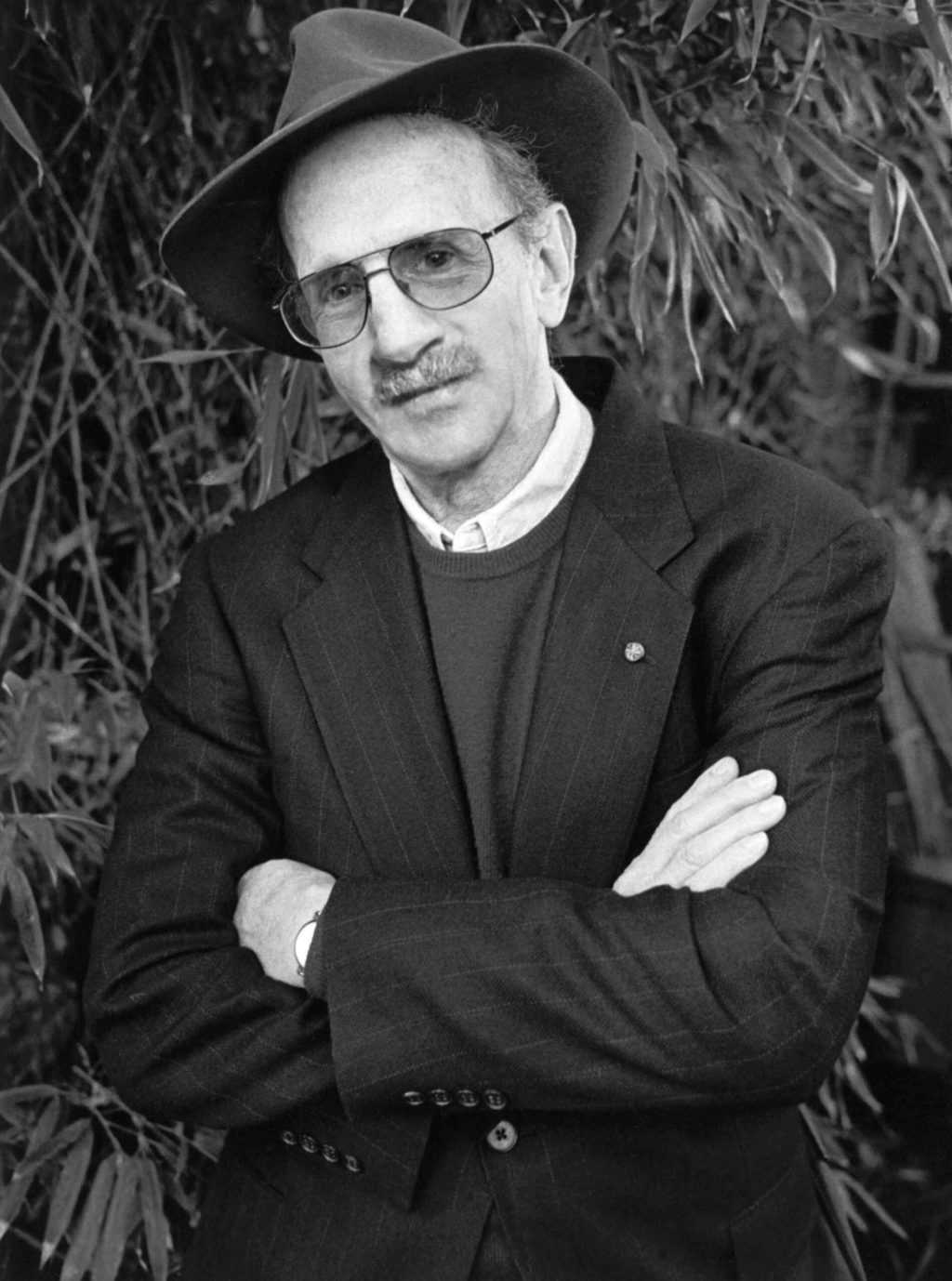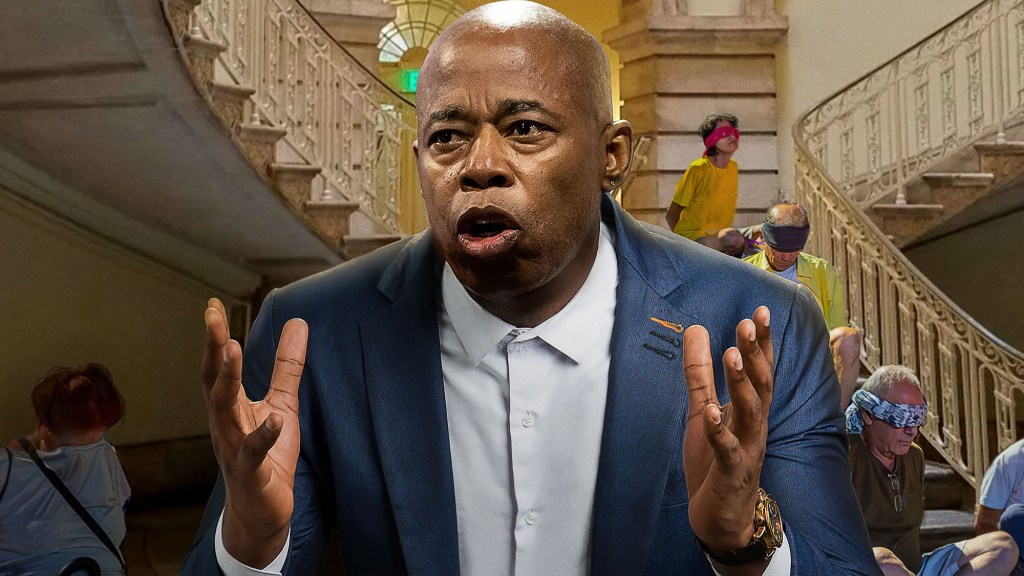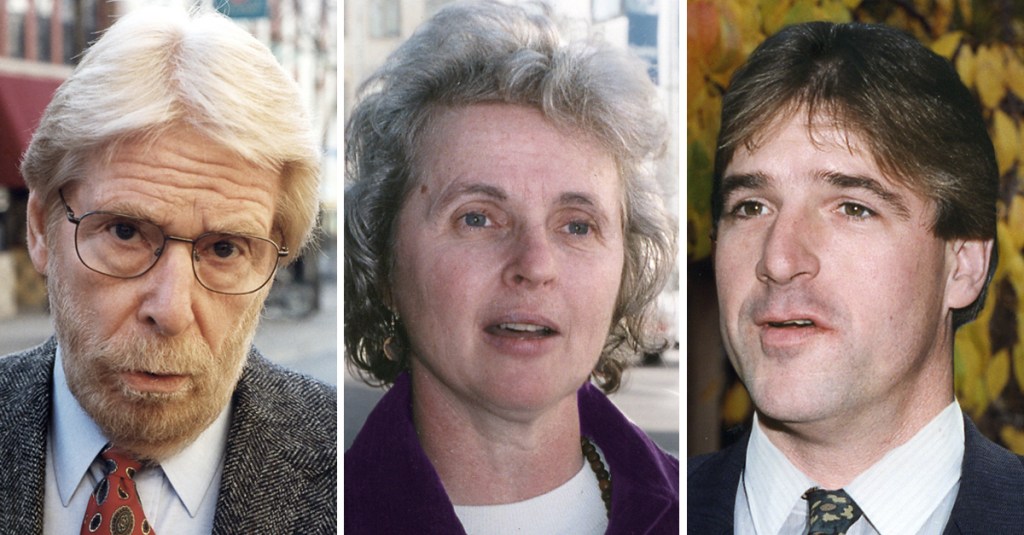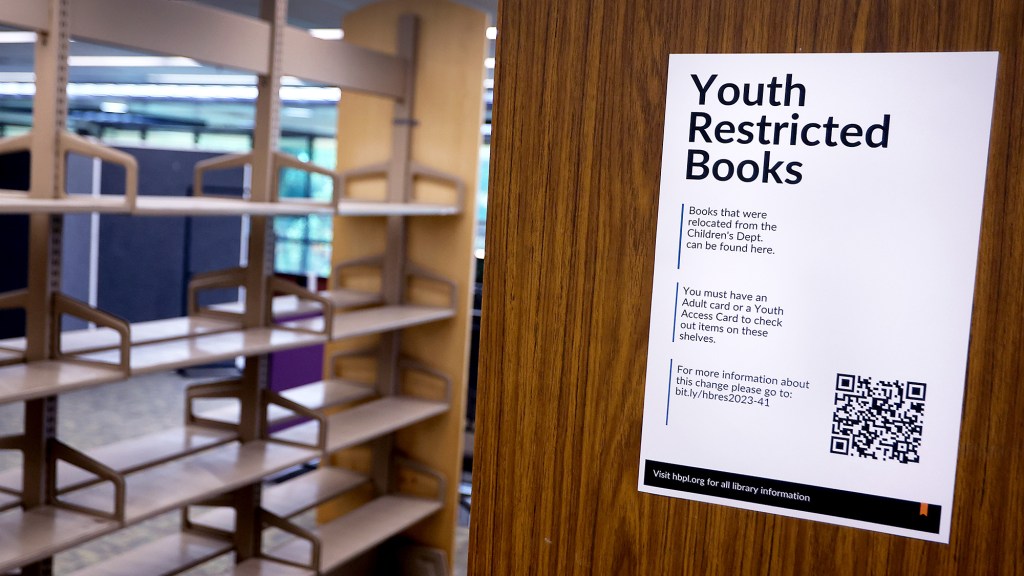FRESNO, CA—Struggling through difficult times marked by war, economic despair, and political turmoil, the nation turned en masse this week to its newly appointed poet laureate, seeking solace in his words as so many generations of Americans have before in the words of laureates past.
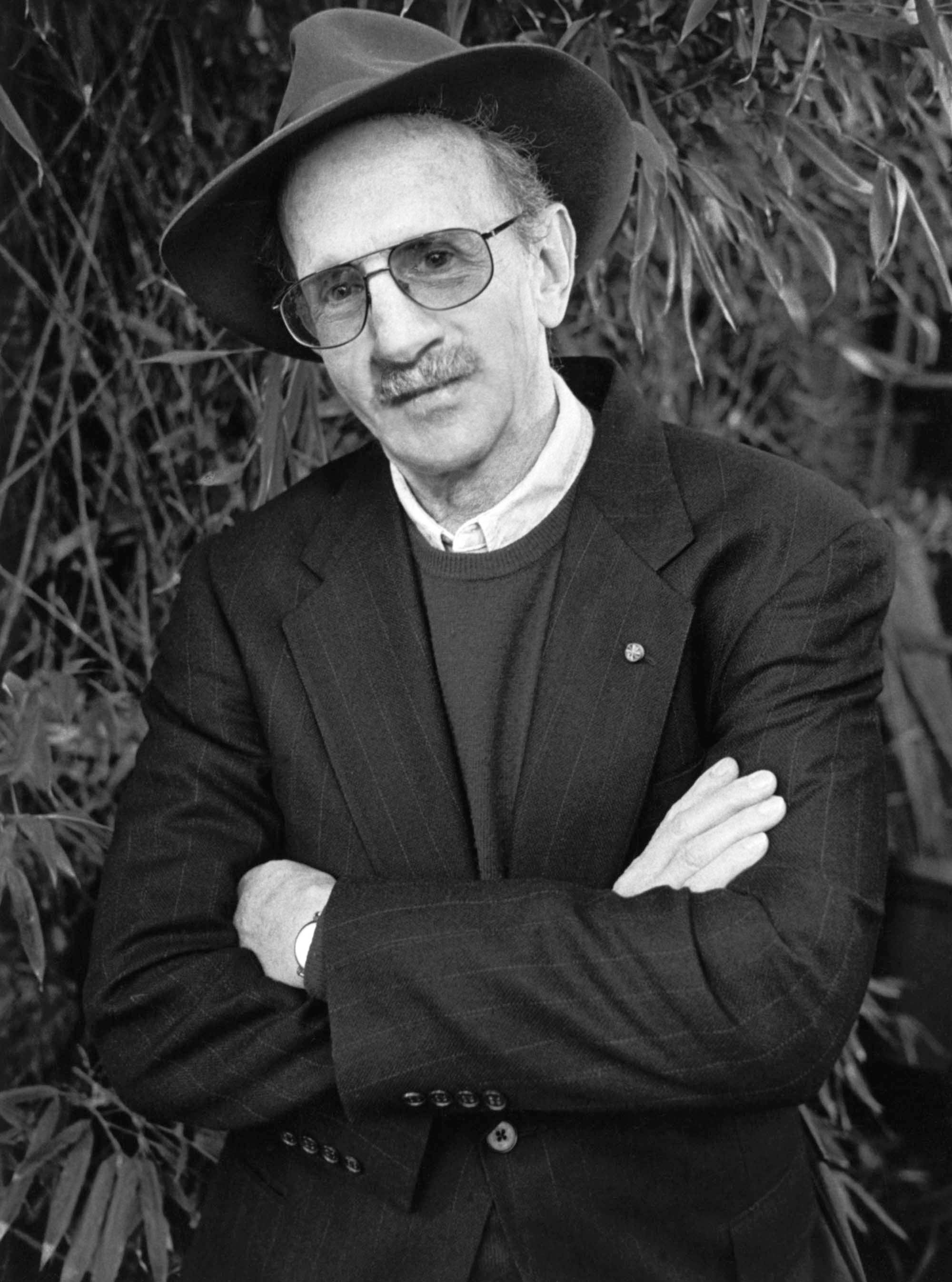
Despondent citizens from across the country began gathering this weekend outside the Fresno home of 83-year-old Philip Levine, the California State University professor and poet who in less than two weeks will assume the widely celebrated title, beginning a yearlong term in which all Americans will turn their gaze upon him in search of hope and guidance.
“We’ve long relied on our poet laureates as a beacon of hope in times of trouble,” said 55-year-old car mechanic Chuck Burgess, who traveled from Minneapolis to keep vigil alongside the many thousands waiting for the sagely Levine to emerge from his two-story ranch house and take up his new mantle. “Their masterfully crafted verses and subtle explorations of interiority dispel the nation’s fears in a way that nothing else can.”
“Right now, America is eagerly anticipating his words,” added Burgess, later saying that he’s been tracking Levine’s work ever since it won the Levinson Prize from Poetry magazine in 1981. “We’re counting on the discursive lyricism and shifting postures of fractiousness for which Mr. Levine’s poems are renowned to lift our spirits.”
According to reports, copies of Levine’s 2004 collection Breath have been pulled down from bookshelves in living rooms throughout the nation, with friends and family gathering to reread the new laureate’s free verse testaments to the persistence of life in the presence of coming darkness.
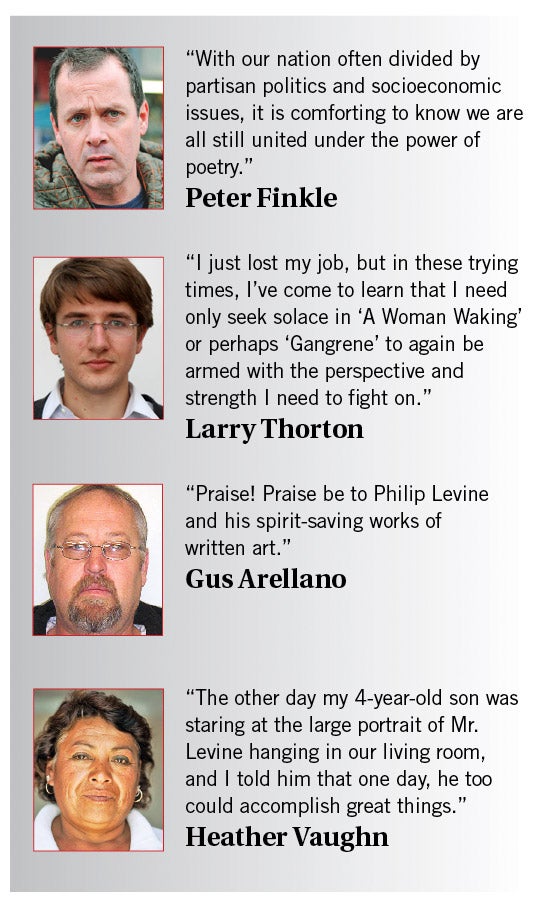
In addition, because the nation’s 300-million-plus citizens don’t want to miss a single word of what the poet has to say, continuous live news coverage from Fresno has preempted television programming on all channels.
“There are few things Americans love more than poetry,” said Miami-area real estate agent William Chen, who was among the masses assembled on Levine’s front lawn. “At this point, one could even say that desire for intellectual stimulation through layered poetic musings might be the only thing holding our wounded nation together.”
The position of United States poet laureate was introduced in 1937, when Joseph Auslander became the first to receive the honor, his rarefied diction and reliably metered verses having provided comfort to a nation debilitated by the Great Depression. Since then, sources confirmed, his successors have unfailingly provided Americans with the poetry they need just to be able to get through their day.
“Thank God this country has a poet laureate,” recently out-of-work glassworker Mitch Tate, 44, told reporters. “Without [2004-2006 laureate] Ted Kooser’s profound lines likening the destruction of a galaxy billions of miles away to a snowflake falling on water, I’m not sure we ever could have mustered the inner strength to overcome the devastation of Hurricane Katrina.”
While the majority of Americans have read all 20 volumes of Levine’s poetry—as well as the collected works of each past laureate—most agreed that seeing on paper works such as ’The Water’s Chant,’ ’I Sing The Body Electric,’ and ’On The Meeting Of García Lorca And Hart Crane’ had only partly satisfied their needs.
Now, sources said, it is absolutely essential they hear him read his poems aloud.
“With so many Americans struggling to get by, it’s no wonder they’re craving more intellectual nourishment from their nation’s poets,” said Sen. Scott Brown (R-MA), standing among the cheering enthusiasts in Fresno. “The sheer excitement that overcomes our people when a poetry reading is announced tells you how badly we need this guy.”
“Speak to us, poet,” Brown was later overheard saying as he gazed through Levine’s window. “Invoke the muses and soothe our distempered hearts!”
As of press time, Levine had reportedly stepped out his front door to meet the hysterical crowd, immediately pacifying them with his mere presence.
“Be still, my children, and listen,” said Levine, donning on a pair of wire-rim glasses, opening a brown leather-bound journal, and taking a seat on his porch swing. “I shall now read to you a poem entitled ’Milkweed.’”


